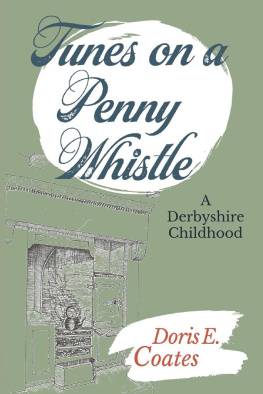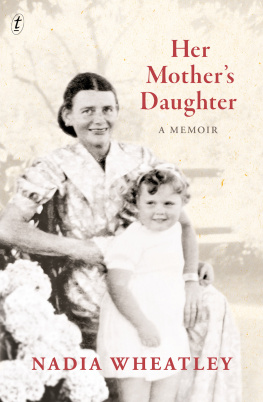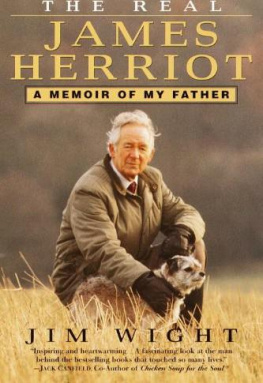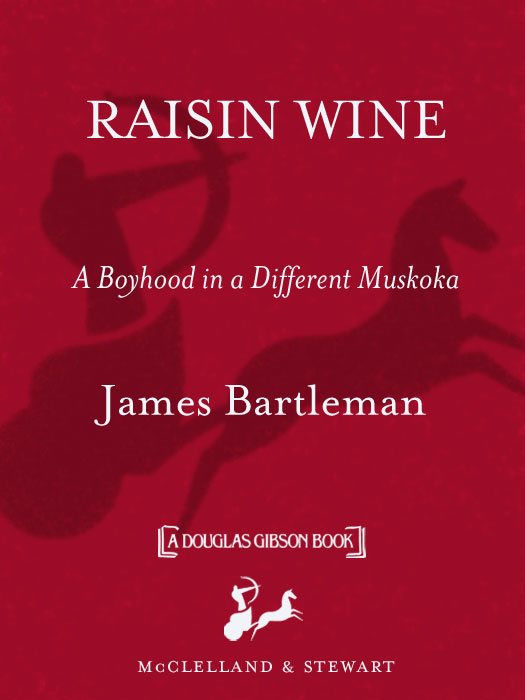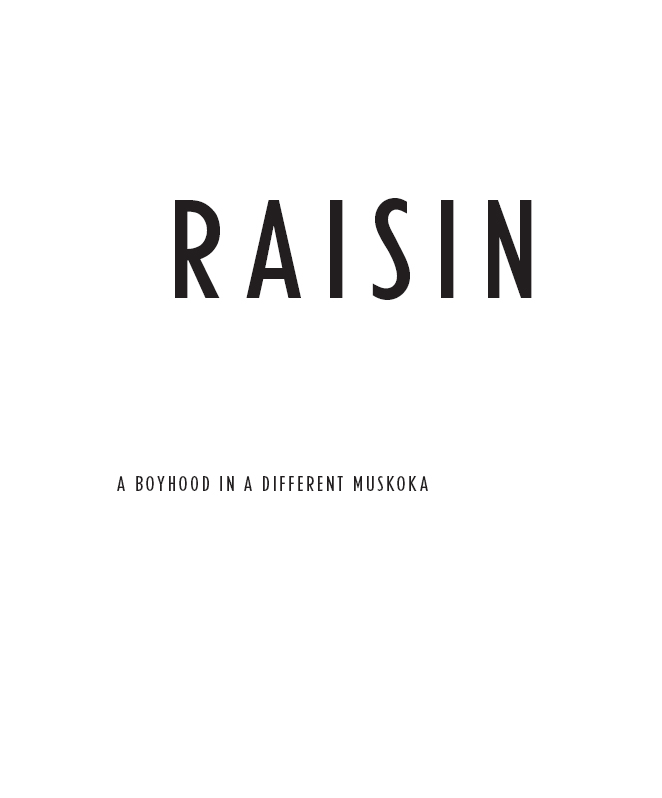Contents
For my parents, Maureen and Percy Bartleman.
Acknowledgements
I should like to thank my wife, Marie-Jeanne, my son Alain, as well as Douglas Gibson and Nanda Casucci-Byrne.
We live our life as the tale is told.
Psalm 90
ONE

Voices in the Wind
T HEY LIVED IN A THREE-ROOM , two-storey house on a one-acre lot overgrown with trees in Port Carling, a small village in Ontarios cottage country. The mother, who was Indian, had long been familiar with the dwelling. As a child in the 1920s and 1930s, she had spent time with her extended family in the tiny local enclave known as the Indian Camp where native people from her distant reserve gathered in the summers to fish and to sell handicrafts to tourists. In those early days, she used to cross the street whenever she approached it, for a villager had hanged himself on a backyard apple tree and it was rumoured that his tormented spirit had taken up residence in the long-deserted house.
Certainly the building gave every impression of being haunted. Their glass shattered by stones thrown by schoolchildren over the years, two large windows stared down at passersby on the street like the Windigo, sinister eater of human flesh and evil spirit in Chippewa mythology at least in the imagination of the impressionable native child who had heard too many tales of monsters at home for comfort. Her fear was that the resident ghost would float out of one of the black and eyeless sockets to seize her and do her in. She never dreamed that one day the house would become her home.
During the Great Depression, the Indian girl, now a young woman, married a white man, a hard-working unskilled labourer, scarcely older than herself. And other than a fondness for home-brew (raisin wine was his favourite), he was a good husband. After their initial shock, for white men did not marry Indians in those days, his parents accepted their Indian daughter-in-law. The war came. The army rejected the husband because of a bad heart. The mixed couple, with their growing brood of half-breed children, drifted from town to town until they arrived in the village of her youth the year after the war ended. Their children were now four in number and the family lived in a tent on wasteland near the dump for the summer and in an uninsulated summer cottage for the winter. Desperate for a home of her own, the mother remembered the abandoned house.
The years had not been kind to it. Now known in the village as the old shack on the hill, it had neither indoor toilet nor electricity. Likewise, rainwater leaked through the much-patched tarpaper roof, the wooden pillars that served as foundations were rotting away, and the house leaned perilously to one side. But the unpainted, weather-beaten exterior walls that had turned barnwood-black with age were solid, the walls of the one room occupying the ground floor were clean, and the partitions of deep-brown hemlock studs covered by thin boards separating the two upstairs bedrooms were clean and dry. The mother shrugged off her fears of the Windigo, persuaded the owners to let her purchase the property by making small monthly payments, and moved her family into the new home in the spring of 1947.
The mother may have put the story of the hanged man and ghost behind her, but her son, to whom she had confided the story, had not. Not that he was really afraid. He was, after all, seven years old and had been told by his father that ghosts did not exist. Nonetheless, he was never at ease at night when he had to visit the outdoor privy some distance behind the old house in a grove of sumach trees. In fact, anyone, even someone with a less active imagination than the boys, would have found the experience spooky. Flashlights were a luxury the family could not afford, and the boys only source of light as he stumbled along the path was from coal-oil lamps inside the house that filtered out through the ancient single-pane windows casting eerie shadows on the ground outside. To make matters worse, the boy was convinced that he could hear ghostly moaning sounds whenever he passed the apple tree where the neighbour had hanged himself. His unease turned to fear on moonlit nights since at times he thought he saw the victim, a rope around his neck, swinging in the obscurity among the branches of the apple tree. And his fear turned to terror on pitch-dark windy ones since the moaning from the restless spirit then seemed to reach new levels of despair.
Once back inside the house, the boy felt brave at least in the company of his family when it gathered together in the evenings before going to bed. There was safety in numbers in that crowded room serving as kitchen, dining room, and living room. A wood-burning cookstove, a supply of drying wood, and a sink occupied one half of the space. A row of rubber boots was neatly lined up just inside the front door. Behind the stove, screwed into the wall, were rows of clothes hooks holding the coats and hats of the family members. An oilcloth-covered kitchen table, six hardwood maple chairs ordered from Eatons catalogue, and an old couch filled the other half. Off in a corner was the icebox with its two standard compartmentsone for milk, butter, meat and vegetables and the other for blocks of ice, cut out of Lake Muskoka in the dead of winter and delivered door-to-door throughout the year by a local farmer.
In addition to the boy, a crying baby, a quarrelsome younger sister, a bossy older brother, an overworked mother, and a preoccupied father filled every available space. This did not include a dog and cat who cohabited reluctantly with a baby raccoon the father had rescued and which he was raising with more open affection than he gave to his own children. The clamour was such, the boy reassured himself, that the ghost in the apple tree, if it really existed, would never dare enter the house.
Upstairs in bed, when the other family members were asleep, he was not so certain. Despite the comforting presence of his brother and sisters in their shared bedroom, the boy was worried. For when the house was silent, he thought he could hear the sounds of the moaning from the afflicted soul through the old buildings exterior walls. Having heard his parents say that death by suicide was unnatural, the boy thought the spectre must be guilt-ridden at having taken his own life.
And deepening his anxiety, he was preoccupied by a story of an encounter with supernatural evil told in all sincerity by a cousin of his mother. This cousin, a quiet Indian trapper with dark brown skin and piercing black eyes, often came to the house to spend the evening with the family bearing carcasses of beaver and muskrat as gifts for the mother to cook. On a recent visit, he had been more taciturn than usual and had looked so often at the window and with such a deeply troubled expression, the boys mother had asked him what was wrong.
Speaking in a barely audible voice, the cousin confessed that despite being warned repeatedly by the preacher on his reserve that gambling was wicked, he had played cards for money late into the night at the home of a neighbour. Outside, it was a cold, dark, moonless night. Inside, six friends sat around the kitchen table, illuminated by a solitary coal-oil lamp whose thin yellow glow reflected off the glass of the bare windows, devoid of curtains and blinds. Four were playing and two were watching and waiting their turn to join in.


